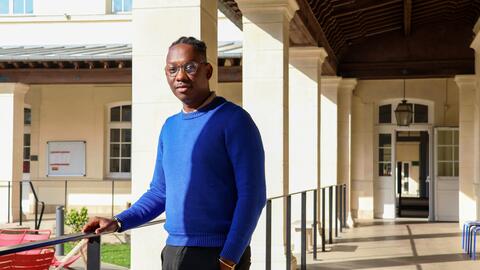The Research and Expertise in Political Dynamics in Societies (RESSP) is designed for students wishing to acquire the theoretical and methodological bases required to build a scientific approach to political and social phenomena.

Structured around the “analysis of public issues” (APP), this Master’s program explores the formulation of scientific research questions, the formulation of hypotheses and the production of appropriate methods of investigation in the study of social phenomena. The program highlights the importance of theoretical frameworks, practical methodological tools, investigative techniques and writing.
A variety of courses taught by many instructors explore qualitative and quantitative research methods in the social sciences, the ins and outs of public policy development, the development of regions and public issues, as well as the use and importance of media in contemporary society.
The program aims to develop the student’s ability to dialogue with other disciplines in the humanities and social sciences (geography, planning, sociology, information and communication sciences) by mobilizing various objects of investigation – public policy, initiatives, gender, media, sociology of professions, urban sociology, migration, environment – in the process of writing their research dissertation. Students can therefore choose their dissertation subject freely, provided it is within the scope of expertise of teams at the Arènes laboratory, the CNRS joint research unit that manages the Master’s program.
UE 1: Basic concepts
- The individual and individualization
- Inequalities, vulnerabilities, hardship
- Political arenas, power and regional governance in Europe
-General seminar at ARENES
UE 2: Sectoral policies and the regionalization of public policy
- Economics of public health policy
- Sociology and youth policies
- Media constructs of public issues
- Constructs of environmental issues and risks
- Gender: initiatives, media and public policy
UE 3: Methodologies in social sciences
- Research design
- Qualitative methods in the social sciences
- Quantitative methods in the social sciences (Level 2)
- Mixed methods in the social sciences
UE 4: Producing, promoting and publishing knowledge
- Public procurementand collective research
- Public sociology and urban knowledge
- Research seminar
-Research workshops (independent study)
The dissertation must be defended before the end of September of the year following enrollment in the Master.
The APP program places special importance on full and mandatory attendance and teamwork to promote a sense of community. Students have access to conferences, seminars and a variety of other activities at the Arènes laboratory. Mandatory attendance at the general seminar enables aspiring young researchers to familiarize themselves with laboratory life.
The program is designed to foster synergies among motivated students, to whom tailored, supportive and discerning supervision is provided.
In partnership with Ecole des Hautes Etudes en Santé Publique, the École Normale Supérieure de RennesandUniversité de Rennes 1.
A wide range of instructors.
One third of students secure thesis grants every year and go on to pursue a career in research at universities, grandes écoles or public or private research institutions in Rennes or elsewhere, and the Master opens doors to other opportunities as well. The preparation of the dissertation itself is an intellectual learning experience and an opportunity to acquire the investigative and summarization skills so essential to an organization. More generally, skills acquired for research in the social sciences are employable in multiple fields connected in varying degrees to academics and research.
Graduates go on to hold roles at local authorities, consulting firms, and private and semi-public institutions specialized in the evaluation and design of local and sectoral policy initiatives in the third sector. Other options include competitive examinations for regional civil service positions, for preparatory class and university-level teaching positions (agrégation), or for secondary school teaching positions (CAPES). Graduates can also use this Master as a springboard to civil service competitive exams.
- Second-year Master’s students (M2): this Master’s program is open to any student who student who has obtained a first-year Master’s degree or equivalent (240 ECTS credits). Applicants must submit a one-page “research project” presenting a subject of study, some examples of scientific literature, and a question outline. Applicants enrolled at other universities in law, political science, sociology, history, geography, economics, management and economic and social administration (AES) are also welcome.
- Continuing education: continuing education applicants must have completed a first-year Master’s level degree (M1). Applicants without a first-year Master’s degree can apply for recognition of previous learning.
The program can accommodate 10 students. Admission is based on an application and an interview for qualified applicants.
Second-year Master’s admission
Click hereto register and download the application file
+ The completed application file and supporting documents should be emailed as a single PDF to the address indicated on page 2 of the file.
If your application is accepted, you may be contacted for an interview with the academic program director(s).



